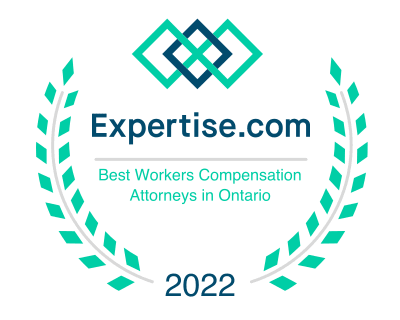Workers’ Compensation in California, follows the guidelines and regulations that are clearly defined and easy to understand – if you’re a knowledgeable Santa Ana, CA workers compensation attorney with ample experience.
Unfortunately, most individuals aren’t, making navigating the system very difficult. To help you thread the turbulent waters, we’re bringing you 15 of the most frequently asked questions that cover the essentials of how the system works in The Golden State.

1. What is Worker’s Compensation?
Workers’ Compensation is a state-mandated insurance program that provides compensation to employees who suffer job-related injuries or illnesses. This is a no-fault system – meaning it doesn’t matter if your injury was your own fault, the system will still pay to make you “whole” again.
2. Who is covered by Worker’s Compensation in California?
Almost all employees in California are covered from the first day of employment. This includes part-time, full-time, and, in some cases, independent contractors and even temporary employees from temp. agencies.
3. What types of injuries are covered under Workers’ Compensation?
Workers’ Compensation covers injuries or illnesses that occur as a result of employment. This includes sudden accidents, traumatic brain injuries, repetitive stress injuries (such as carpal tunnel or cubital tunnel syndrome), and more, as well as work-related illnesses.
4. How do I report a work-related injury or illness in Orange County?
You should report the injury or illness to your employer as soon as possible. California law requires employees to report their injury within 30 days to be eligible for benefits. Ideally upon your injury or illness you should contact your supervisor right away and ask to be sent to a medical professional for evaluation. This ensures you catch the injury or illness early on without risking any further injury, as well as prompt claim filing, so there is less likelihood of it being delayed or denied.
5. What benefits can I receive under Workers’ Compensation in California?
Workers’ compensation benefits may include:
- Medical care;
- Temporary disability benefits (TTD);
- Permanent disability benefits;
- Supplemental job displacement benefits;
- Death benefits.
6. Can I see my own doctor for a work-related injury?
Initially, you may need to see a healthcare provider within your employer’s medical provider network (MPN). However, you can predesignate your personal doctor if you wish to see them for a work-related injury. Predesignation is something that is supposed to be offered by each employer when you are hired but is often overlooked. So take the initiative and ask them to list your personal doctor as your preferred choice if you are injured.
7. What if my Workers’ Compensation claim is denied?
You have the right to appeal a denied claim. The process involves filing a claim with the Workers’ Compensation Appeals Board (WCAB). Acquiring an experienced Workers’ Compensation Lawyer at this time would be a very good idea.
8. How long do I have to file a Workers’ Compensation claim in California?
You should notify your employer as soon as possible, but no later than 30 days from the date of injury. For filing a claim with the state, the statute of limitations is generally one year from the date of injury.
9. Can I be fired for filing a Worker’s Compensation claim?
It is illegal for an employer to retaliate against an employee for filing a claim in any way, and wrongful termination falls under this rule. This is yet another reason why it is important to hire a Workers’ Comp Lawyer as soon as you are injured.
10. Are stress-related conditions covered by Workers’ Compensation?
Yes, stress-related conditions can be covered if they are proven to be work-related and meet certain criteria set by California law. However, they are not subject to you earning any reimbursement through the Personal Disability process of Workers’ Comp. You are only entitled to medical care and any future medical care that may be necessary.
11. What is a QME and when would I need one?
A Qualified Medical Evaluator (QME) is a physician who evaluates you to resolve disputes between your lawyer and the insurance company about your medical condition. You might need one if there’s a disagreement between your doctor and your employer’s insurance about your injury.
12. How are Worker’s Compensation benefits calculated in California?
Benefits are calculated based on:
- Your average weekly wage;
- The extent of your impairment;
- The type of injury or illness you have.

13. Can I receive Worker’s Compensation benefits and Social Security Disability Insurance (SSDI) at the same time?
Yes, you can receive both but, in that case, your SSDI benefits may be reduced in the form of a credit against your work comp benefits. In other words, the amount you receive from workers’ compensation may offset some of the SSDI benefits you would otherwise be entitled to. This is a safeguard against “double-dipping” and ensures the individuals cannot potentially receive more than they would be able to earn if they’re fully able to work.
14. What is a supplemental job displacement benefit?
This is a voucher that helps pay for educational retraining or skill enhancement if you are unable to return to your job because of your injury. Essentially, it helps individuals transition into new career paths or acquire new skill sets necessary for finding employment suitable for their post-injury physical capabilities.
15. What should I do if I disagree with the Workers’ Compensation decision?
You can file an appeal with the Workers’ Compensation Appeals Board (WCAB) located in the South Coast Metro District of Santa Ana. It’s often beneficial to seek legal advice when appealing a decision. Hiring an experienced workers’ compensation lawyer in Orange County will give you a better chance and receiving a higher settlement and faster medical care.
Which Santa Ana, CA workers’ compensation attorney near me can best help my case?
Consulting with specialists at the California Workers’ Compensation Lawyers, AOC in Orange County should always be your first choice, regardless of whether you’re just filing a claim or applying for SIBTF benefits.
With 20+ years of experience and in-depth knowledge of the subject matter, we provide guidance and support that can prove vital for the best outcome for your case. Reach out to us today and let us help you secure benefits that are rightfully yours!








